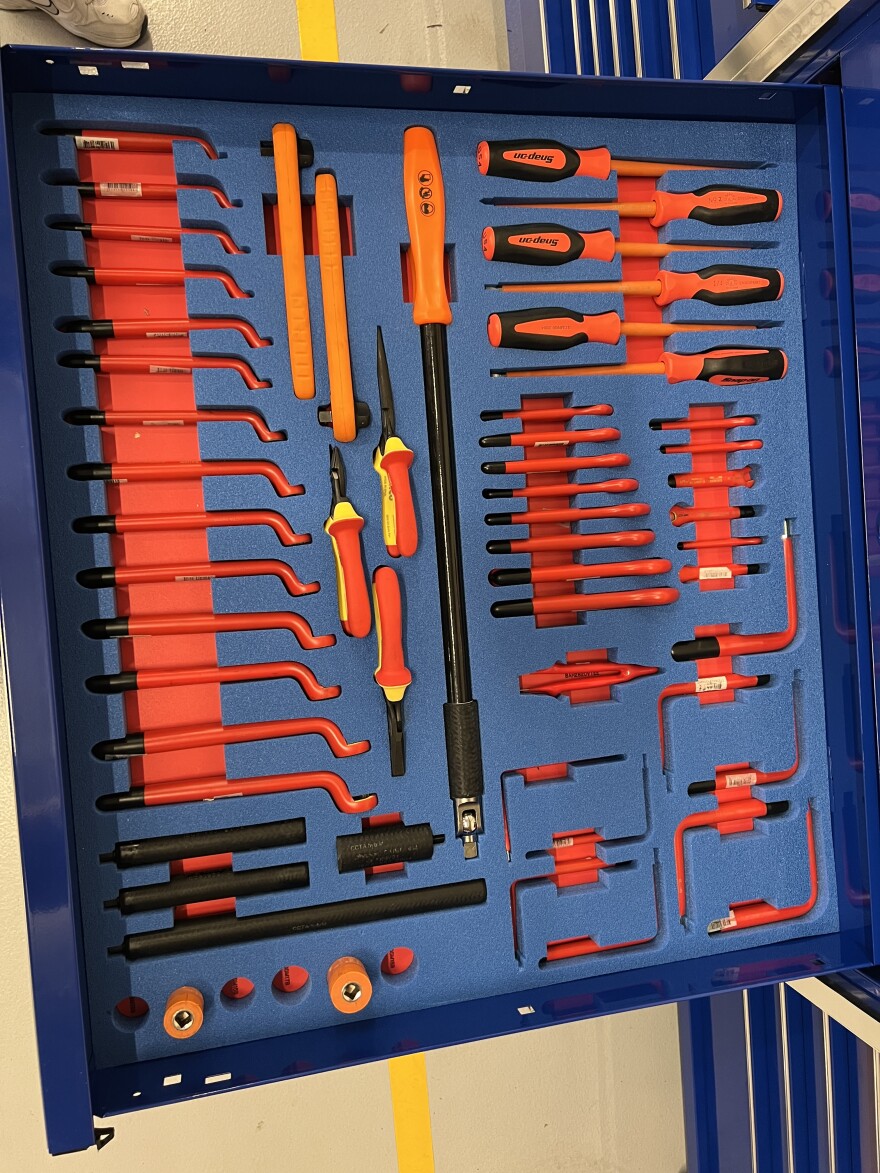Local tech schools on Cape Cod are preparing students to work safely on electric vehicles (EVs).
This comes as the EPA has proposed rules to have electric vehicles make up two-thirds of all new cars sold in the US by 2032.
Cape Cod Technical High School in Harwich received $226,000 through the state’s Skills Capital Grant program to buy five electric vehicles.
Matthew Moynihan heads up the Automotive Technology department at Cape Cod Tech.
He said EVs are rapidly changing the industry, so it’s critical that students get familiar with them.
“As the cars become more and more common in the places that (students) are going to go and work… It’s really important as they go there, they know and understand how the vehicles work and they know how to safely work around them for the jobs they would be doing on them.”
Moynihan said the state grant also allowed the school to purchase fully-insulated tools for safety.
Matthew Moynihan
“We’re trying to create students that know how to safely work around EVs, that’s kind of our main goal right now. We’re not looking to have students that are full-blown EV technicians coming out of here. That is not really in the capability in what we have.”
Tracy Volkswagen in Hyannis helped procure the vehicles for Cape Cod Tech, which the school says expedited the process of having them in the shop for students.
Moynihan said teens are learning on both hybrid and full electric vehicles.
Superintendent Bob Sanborn said it’s part of a larger movement by technical high schools to adopt EVs into their curriculums.
“It is the trend. We want students in the programs that we have close to the cutting edge, or at least being introduced to the cutting edge, as we move forward.”
The school’s automotive program is communicating with local business owners to understand what skill are needed for EV mechanics entering the workforce.
Upper Cape Cod Regional Technical High School in Bourne has also made EV safety part of their automotive curriculum.
Pedro Bento is an Automotive Technology Instructor at Upper Cape Tech. He said their advisory group told the department to cover high voltage safety with students, but to let dealers and shops handle in-depth EV training.
About 4% of registered cars in Barnstable County are zero-emission or hybrid vehicles, that’s up from about 2.5% of cars before the pandemic.
Massachusetts is looking to get 300,000 electric vehicles registered in the next few years to help limit emissions from transportation.
